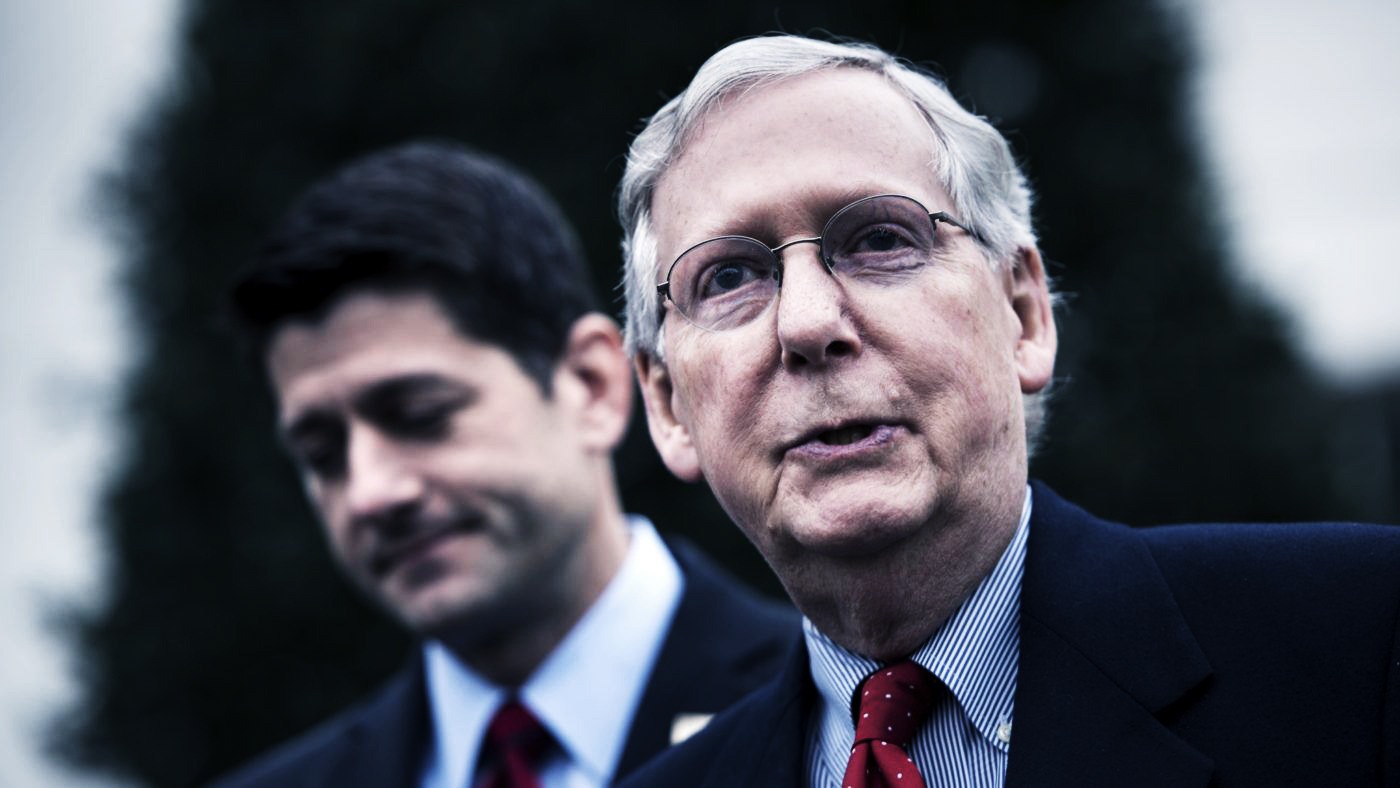Congress returns from its Fourth of July break this week, but the legislative fireworks keep being delayed. The Republicans control the House and the Senate, and they even have a nominal Republican in the White House. Yet after six months in power, they cannot agree on a single significant piece of legislation.
The fiscal year ends on September 30th. Allowing for the traditional August holiday, that leaves little more than 30 working days to propose, cost and vote on bills on healthcare reform, tax reform, and the deficit. On healthcare, the need to avoid further embarrassment may hurry the Republicans towards a bill in which the cure perpetuates the disease.
Even Bill Clinton has acknowledged that the Affordable Care Act (Obamacare) has not worked. Premiums keep rising, and coverage keeps shrinking. Only the health insurance companies are happy. After all, their profits have nearly doubled since 2009.
Donald Trump campaigned on a promise to erase the infamy of Obamacare. But in January, the House rebuffed the American Health Care Act (AHCA), a proposed “repeal and replace” bill. Some House Republicans feared that cutting healthcare coverage would lose them votes in the 2018 mid-terms; others thought that the AHCA did not go far enough. Now, the Senate and House Republicans are at odds over the alternatives.
In his 2014 campaign, Mitch McConnell, leader of the Senate Republicans, promised a “root and branch” attack on Obamacare. In terms of cost, the outline for his current “reform” bill calls for nothing more than a little light pruning. But it would also confirm the Democrats’ claim that the Republicans are a party of uncaring plutocrats.
McConnell is prepared to cancel the “individual mandate” which compels all adult Americans to buy health insurance. McConnell also proposes to abolish Medicaid, which covers health costs for low-income Americans, and to allow health insurers to offer cheaper plans with limited coverage. The Congressional Budget Office calculates that by 2026, McConnell’s bill would return 22m of America’s poorer citizens to their pre-2009 uninsured state. Many of them are also Republican voters. They may not appreciate being returned to the healthcare underclass.
McConnell is trying to strike a balance between the aspirations of Obamacare and the corrective of January’s failed AHCA. His plan also proposes to give the insurance companies $136 billion, to “stabilise” the insurance market in the coming transition. To many Republicans, and especially to libertarians like House Speaker Paul Ryan, this is a continuation of Obamacare by other means.
Some of Ryan’s ideas on healthcare are genuinely creative. Small businessmen and the self-employed are vital to a growing economy, yet they have been especially affected by Obamacare’s ever-rising costs. Ryan suggests that the law permit these individuals to form “associations”, Burkean “little platoons” that can engage in collective bargaining with the health insurers. Associations might also secure coverage for people with a “pre-existing condition”. If they joined an “association”, the extra costs would be shared among its members.
McConnell’s cost-cutting and Ryan’s more innovative approach share the same weakness — the weakness at the heart of Obamacare. The Democrats ordered all Americans to buy their own health insurance, and hoped for an economy of scale. Instead, the poor, the young, and the risk-prone preferred to pay a small fine than an endless series of extortionate monthly bills.
The Republicans now wish to allow Americans to opt out of purchasing health insurance. This will only reduce the public’s bargaining power further, and accelerate the death spiral of falling enrollments, shrinking coverage, and rising premiums. It will also perpetuate the oligarchic relationship between the government and the health insurance industry.
The Republicans’ Obamacare-lite will perpetuate the worst features of Obamacare, and without preserving its best feature, the promise of “universal” coverage. There is, however, another way of mixing government and private health provision. It is staring Americans in the face, and literally so if they live in the northern states: Canada.
The Canadians have a “single-payer” system. Like Britain’s NHS, Canada’s healthcare is funded from public taxes, not private insurance. But most Canadian medical care is provided American-style, by private contractors. Canadian healthcare is cheaper than American healthcare, for both the government and the taxpayer. It is also a point of consensus, rather than division, for the public.
Donald Trump has voiced his approval of a Canadian-style alternative to Obamacare. For that to happen, the Republicans would have to bungle their Obamacare reforms, and be forced to compromise with the Democrats. This is now quite possible. When Mitch McConnell resurfaced after the Fourth of July, he admitted that he did not expect to win the support of the 52 Republicans in the 100-member Senate, and was willing to work with the Senate’s Democrats.
Once again, Donald Trump got there first. “I’ve been saying for the last year and a half that the best thing, politically speaking, is to let Obamacare explode, and then go and make a deal with the Democrats,” Trump said in March, after the House rejected the AHCA.
Much of the Republican base, and many House Republicans will denounce a deal with Democrats as a deal with the Devil. But they may be overruled anyway, and the voters may find that “socialised medicine” tastes sweeter than no coverage at all.
It is not surprising that Donald Trump is sometimes smarter than the Congress. They have repeatedly demonstrated that they are incompetent and, as Obamacare showed, deeply beholden to lobbyists.
It might at first surprise that Donald Trump, having won the Republicans a presidency with promises of protectionism, would achieve a legacy of “socialised medicine”.
But this is an accident of recent history, which identifies tariffs and welfare with the parties of the Left. For it was Bismarck, not Germany’s Social Democrats, who shaped the Zollverein, the customs’ border of a united Germany, and then created the first modern welfare state.


